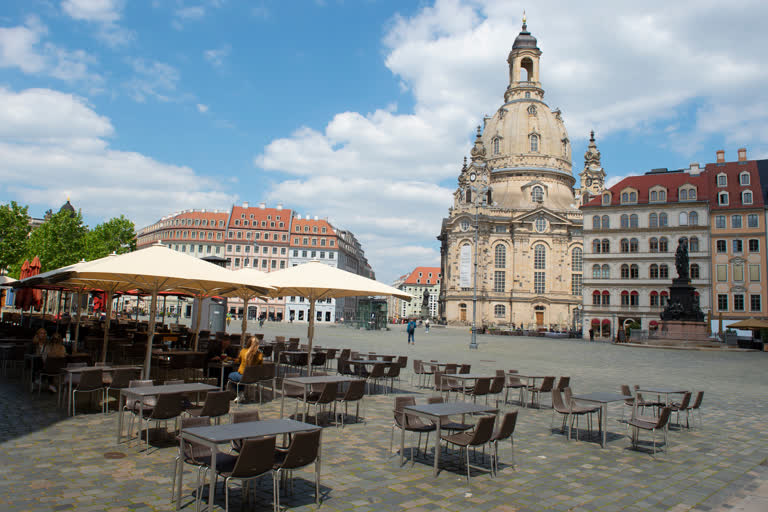Coesfeld: At least 260 workers at this giant slaughterhouse in the city of Coesfeld have tested positive for COVID-19, sounding an alarm just when restrictions imposed to curb the pandemic were slowly being relaxed.
Authorities scrambled to contain the growing outbreak over the weekend, while it emerged many of those infected were Eastern European migrants.
The migrants work for subcontractors who also provide them with accommodation and shuttle buses to work. Constantly together, their infection has spread rapidly.
Another meatpacking company in Germany has also been affected. Authorities have ordered that all the workers must be tested for the virus. The outbreak began shortly before Germany's federal and state governments agreed to trigger an “emergency brake” on relaxing restrictions.
The living and working conditions of the migrant workers in Germany throws light on how much busy urban societies will need to change and adapt to ensure distancing rules are upheld.
Professor Tobias Welte, Head of Pulmonary and Infectious Diseases at the Hannover University School of Medicine is also the President of the European Respiratory Society.
Read more:Know how Chicago morgue copes despite surge in virus deaths
In breathing, we inhale and exhale. When we breathe out, our breath contains aerosol that can carry bacterial or viral droplets. Welte says to calculate safe distancing and how infectious COVID-19 is, they need to know the viral load of these droplets.
He says; "What we do not know is the content of virus, the virus amount in aerosol drops. We do know this for influenza, for rhinovirus (it's a) very high number. It seems to be very low for coronavirus, but it's not clear how many, how dense coronavirus droplets has to be to infect someone."
For large cities like London to get back to work, it's not just the offices, factories and retailers that have to enforce safe distancing.
Transport systems move millions of people around the city and on Wednesday as the UK urged more people back to work it became clear how difficult social distancing can be in densely populated areas.
Also, people don't breathe uniformly, exertion can make you breathe faster and harder, talking or not talking also makes a difference.
Welte says: "It depends on what you are doing so if you are talking a lot, you produce more aerosol if you are coughing you produce more our aerosol, if you are sitting on your desk and you do not talk, you only breathe it's a very small amount."
But whether you're whispering, talking, or shouting you are breathing.
